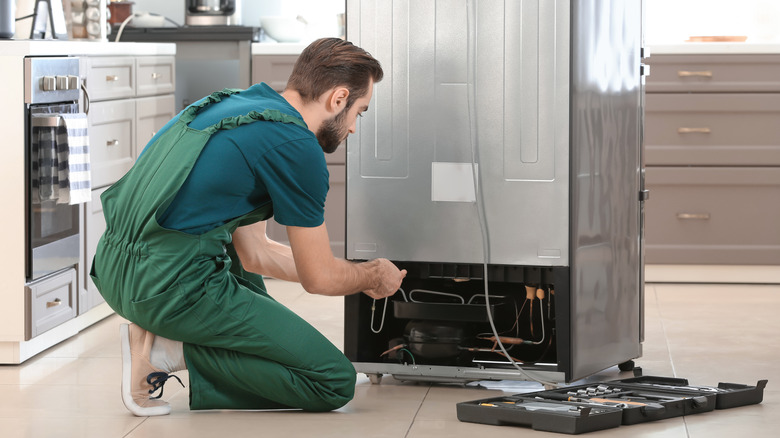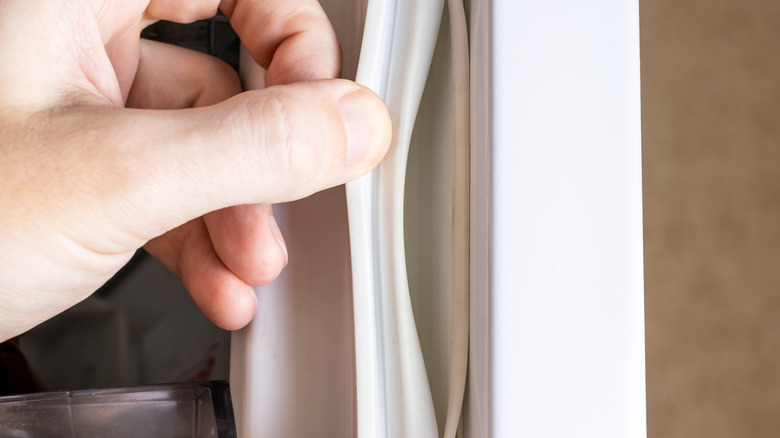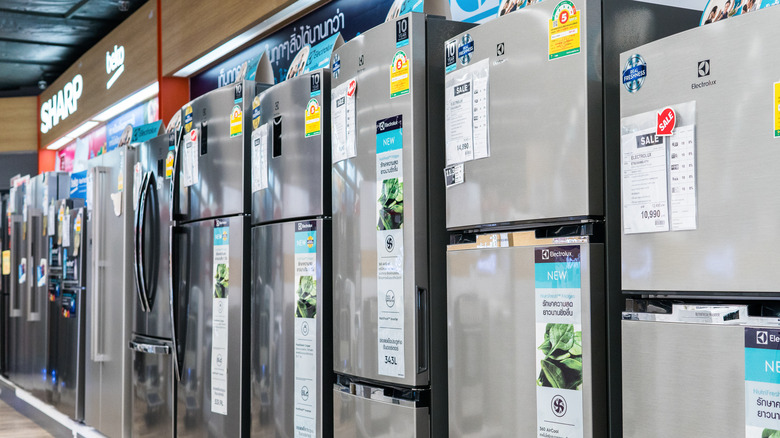Here's How To Judge Whether A Refrigerator Repair Cost Is Way Too High
A faulty fridge at home is a problem that can't be ignored due to how much it affects daily life. Some common issues include cooling difficulty, new noises, leaks, or problems with the door. These usually stem from issues with the motor, compressor, thermostat, and other vital parts that keep the appliance running correctly. There could also be electrical issues with the fridge's power source.
If you're faced with any of these problems, your next step is to get it checked to see what needs to be repaired and how much it will cost. The cost will be determined by what exactly needs to be fixed and if any new parts are required. However, you should consider some other information before paying the quoted price. To judge whether a refrigerator repair cost is unreasonably high, you have to think about its age and the original price you paid for it.
Average costs
The cost of repairing a refrigerator varies widely, anywhere from $40 to $1,000. It depends on the refrigerator type and quality, the severity of the issue, the prices of any parts needed, the labor demands, and the cost of such services in your area. It might be a quick and simple fix or one that requires a lot of time, skill, and labor.
Some things can be DIY, like fixing the light or ice maker, unclogging a drain, or replacing the door seal, but serious problems will need a professional. On average, replacing a compressor can cost about $200 to $650, a thermostat $150 to $400, and a door seal $100 to $350. The labor costs of a professional could be between $50 to $200 an hour, while the initial diagnosis could be between $50 and $150. When you know the diagnosis and receive a quote for everything, consider whether you need to repair or replace it.
How to determine if the cost is too high
A refrigerator is expected to last about 12 years, and proper maintenance and care is the key to having it longer. This means that, when faced with repairs, your first step is figuring out how necessary it is to make the investment. Regardless of the price, spending on repairs when it is wiser to get a new fridge is just postponing the inevitable and will cost you more in the long run.
You can calculate this by looking at how many years you've owned the fridge, its original cost, and the repair quotes. The lower the original price, the higher its years, and the higher the repair costs generally means you should replace instead of repair, per Consumer Reports. Here's an example. If you have a top freezer refrigerator that initially cost $1,200 and you've had it for five years, it would be better to replace it than pay repair costs of $500. Another way to think of it is if repairs cost around 50% of the original price, a replacement might be better.


